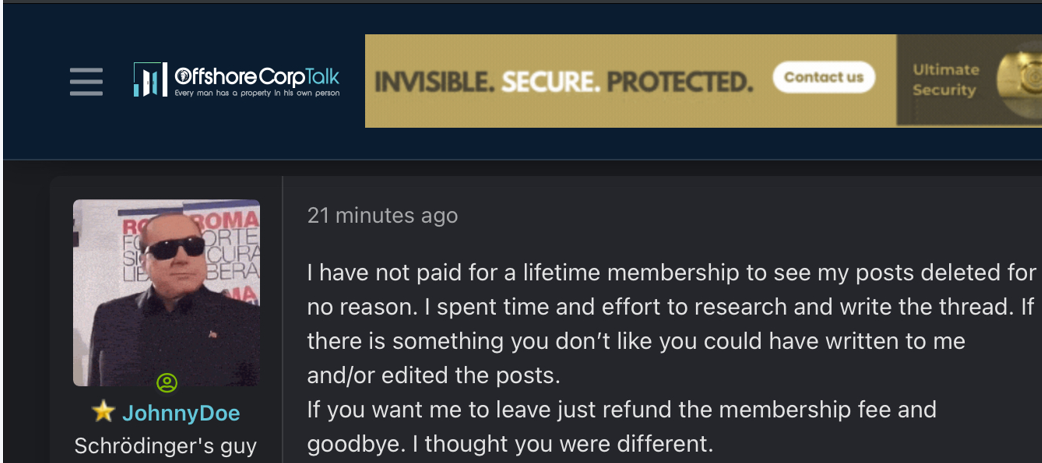Complaint Review: Colonial Bank - Pell City Alabama
- Colonial Bank 2203 First Ave No Pell City, Alabama U.S.A.
- Phone: 205-338-2286
- Web:
- Category: Miscellaneous Companies
Colonial Bank - Pell City, Al Double Fees Pell City Alabama
*Consumer Comment: Nancy, Nancy, Nancy
* : From another bank employee
*Consumer Suggestion: I will TRY to explain it to you
*Consumer Comment: All Banks Are The Same!!!!
listed on other sites?
Those sites steal
Ripoff Report's
content.
We can get those
removed for you!
Find out more here.
Ripoff Report
willing to make a
commitment to
customer satisfaction
Click here now..
Colonial Bank is double charging NSF fees. This has happened to me more than once. I admit the error was mine by having the overdraft at all. What gets me is if you have a charge pending and the money is there, but another charge comes through first, they charge for BOTH charges! I had over $190. in my account with $165. pending for the electric bill. My mistake was thinking I had already paid the phone bill of $95. With the $190. in my account, showing $165. as pending, the $95. hit, and they charged me a $38. NSF fee, then, when the $165. came in, they charged me another $38. NSF fee also! Plus $7.00 a day until the overdraft is covered.
I'm sorry, but basic math says if I have $190. dollars, either the $165. gets paid OR the $95. does. They do not both get charged overdraft fees!
Arguing with the customer service is a waste of time!
I'm changing banks just as fast as I can stop my direct deposit!
Leigh
Pell City, Alabama
U.S.A.
This report was posted on Ripoff Report on 08/01/2009 10:00 AM and is a permanent record located here: https://www.ripoffreport.com/reports/colonial-bank/pell-city-alabama-35128/colonial-bank-pell-city-al-double-fees-pell-city-alabama-475536. The posting time indicated is Arizona local time. Arizona does not observe daylight savings so the post time may be Mountain or Pacific depending on the time of year. Ripoff Report has an exclusive license to this report. It may not be copied without the written permission of Ripoff Report. READ: Foreign websites steal our content
If you would like to see more Rip-off Reports on this company/individual, search here:
#4
From another bank employee
AUTHOR: Exemployee18 - (U.S.A.)
SUBMITTED: Monday, September 21, 2009
In response to the above suggestion. No this is not how banks work. If you have two items pending to be paid for instance $165 and $100. And your balance is $170 both items pending will bring your available balance to (-$95). 170-165-100, therefore when the first item hits your ledger balance it incurs an overdraft fee (not and NSF fee since the item was paid). When the first item hit my guess is that your bank statement read something to the affect of having a balance of positive $5 then you see an overdraft fee of $32. This is because it is paying against the current available balance. Banks are businesses and unfortunately this is how almost every bank works. My best suggestion is to keep a check register at all times, but even doing this is tough since we all live in a real life situaiton. There are two things I suggest doing. One is when you make purchases especially using your debit card keep the receipts in your wallet or at least back pocket of your pants until you go home for the day. When you get home take out your check register and log everything into it. Also check what you have recorded against your available balance form your online banking. Most banks provide free online access. If you do these two things I guranatee your chances of overdrawing your account will go down significantly. Good luck to you!
#3 Consumer Comment
Nancy, Nancy, Nancy
AUTHOR: Domenic - (U.S.A.)
SUBMITTED: Monday, August 10, 2009
Let me TRY and explain THIS to you.
This person had more than enough funds to cover one of those transactions. Thus, one of the transactions should have been paid for with no problem while the other would have put the account over and incurred one legit NSF fee.
This practice of double charging on NSF fees is also known as "double dipping". This type of situation will be addressed in the soon to come reform in bank regulations.
#2 Consumer Comment
All Banks Are The Same!!!!
AUTHOR: Jim - (U.S.A.)
SUBMITTED: Saturday, August 01, 2009
To begin with, what happened to you here will happen to you at the next bank you end up with. Changing banks isn't the issue. Your money management is the issue right now.
To begin with, your overdrafts aren't based on your account balance; they are based on your available balance, which is usually less. Your available balance is your account balance less your pending charges. What is likely is that you had more than the $165 pending; you had another charge pending as well. As near as I could tell, your account balance was less than $165 your account balance showed. It's conceivable your available balance went negative before both charges cleared your account.
Basic math does work, but you're starting with the wrong number. When you start with the right number, it comes out....best of luck to you.
#1 Consumer Suggestion
I will TRY to explain it to you
AUTHOR: Nancy - (U.S.A.)
SUBMITTED: Saturday, August 01, 2009
$190 balance. The $165 PENDING (meaning not yet paid) so that leaves $25 balance. $95 paid, leaving -$70. Then the $165 was ACTUALLY paid, but YOU have a -$70, so another overdraft. So even without the fees you would be -$235. SIMPLE math. ALL banks are the same. IF you do not exercise proper checking acount practices, you will have the same problem at any bank you go to. Get a check register and USE IT.

Advertisers above have met our
strict standards for business conduct.





































